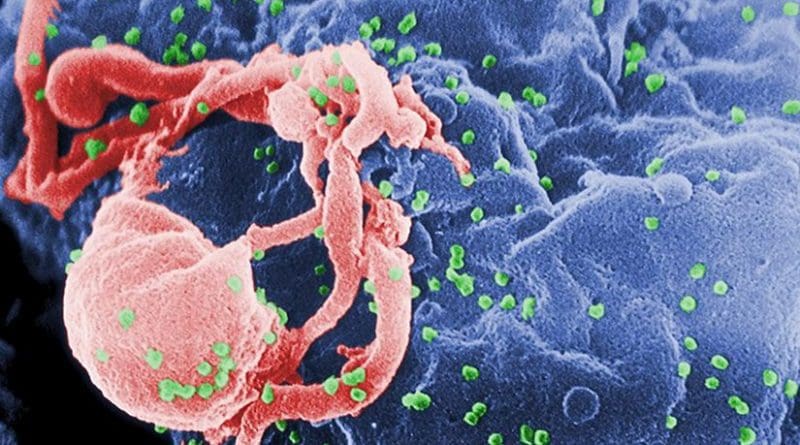HIV Epidemic Continues To Globally Grow Among Gay Men
Gay, bisexual and other men who have sex with men continue to have disproportionately high burdens of HIV infection in countries of low, middle and high income around the world, a new study led by the Johns Hopkins Bloomberg School of Public Health suggests.
The findings, published in The Lancet, come four years after the same group of researchers issued a call to action, laying out an ambitious plan to curtail HIV epidemics in gay men, setting targets for policy reform, funding and improvement in effective HIV prevention and treatment services, including expanded access to pre-exposure prophylaxis (PrEP) which has been highly effective in dramatically reducing transmission among this population.
“While HIV rates have flattened overall in recent years, we’re really concerned that the HIV epidemic is continuing among gay men and we’re going in the wrong direction,” said study leader Chris Beyrer, MD, MPH, the Desmond M. Tutu Professor of Public Health and Human Rights at the Bloomberg School and president of the International AIDS Society. “It’s a tragic situation and it’s painful that the history of AIDS is looking like its future, but that’s actually where we are. But the first step in taking on a problem is recognizing and articulating it and we’ve really done that here.”
Beyrer will oversee the 21st annual International AIDS Conference from July 18 through 22 in Durban, South Africa where failure to meet the needs of gay men will be one of many topics.
HIV is no longer the death sentence it once was and many are living long lives with the virus carefully controlled with antiretroviral treatment. But while new HIV infection rates are falling among heterosexual men and women in many countries, that is not the case with gay men.
For their study, Beyrer and his colleagues analyzed published medical research from January 2007 through October 2015, to identify which elements of their call to action from 2012 had been achieved. They found a few successes. A new $100 million investment fund from the U.S. President’s Emergency Plan for AIDS Relief (PEPFAR) has been set up for key populations affected by the virus, including gay and other men who have sex with men. Several nations have either approved or initiated PrEP projects to facilitate its use by gay men after research studies have proven its effectiveness in preventing HIV infection.
But for the most part, Beyrer says, the failure to get PrEP to the people who need it most –those who are HIV negative and are at high risk of infection — and the backsliding in terms of civil liberties for the gay community in nations such as Russia, Nigeria and Uganda have contributed to the continued high HIV rates among gay men. The U.S. Centers for Disease Control and Prevention, for example, estimated that in the United States a 20-year-old gay black man has a 50 percent chance of becoming infected with HIV in his lifetime.
While PrEP is available in the United States, Beyrer said it is accessible only when people have health insurance to pay for it, and there are real racial and economic disparities when it comes to who actually gets it. Beyrer says in low-income, predominantly minority communities – particularly in the South, where in most states Medicaid has not been expanded to provide wider health coverage – epidemics continue. He said the United Kingdom refuses so far to cover PrEP, despite evidence of its effectiveness.
And despite its availability in poor nations for pennies on the dollar, Beyrer said often the politics of providing medical care to gay men are difficult in many countries. While many nations have made great strides in the past four years in terms of gay marriage, in other nations sodomy remains a crime and other discriminatory policies remain in place, making even getting tested for HIV a potentially dangerous ordeal. In Russia, for example, HIV information websites have even been shut down in the wake of new propaganda laws.
He pointed to a case in Malawi where a man being tested for sexually transmitted diseases was arrested after it was clear he contracted the infection from another man, frightening other gay men away from being screened for HIV and other infections.
“Stigma and discrimination continue to play a very big role in these epidemics,” Beyrer said. “In many countries, these men are just not welcome in health clinics and the fear of discrimination stands in the way of not only treatment, but even just the testing that can go a long way toward stemming the spread of disease.”
Beyrer sees some good news on the horizon. He said he expects Mexico and other nations such as Argentina and the Netherlands to expand the use of PrEP. He said he hopes to see some nations repeal their anti-gay laws.
“The global epidemic of HIV in gay men is ongoing and efforts to address it remain insufficient,” he said. “This must change if we are ever to ever truly achieve an AIDS-free generation.”

